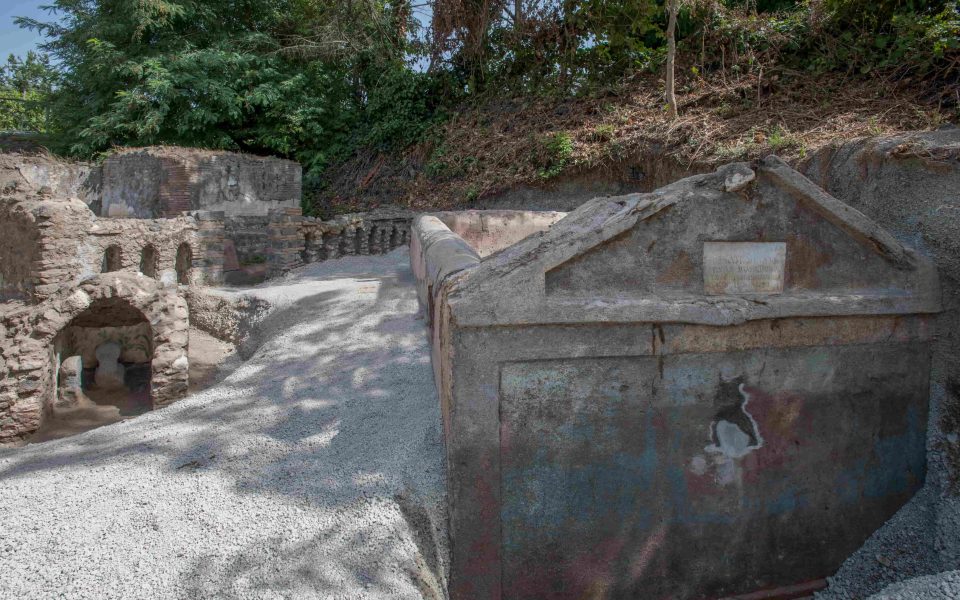Ancient Greek Treasures Return Home from New York
Twenty-nine rare antiquities spanning 5,000 years…

The tomb of Marcus Venerius Secundio is pictured in this undated photo obtained August, 17, 2021, in Pompeii, Italy.
© Parco Archeologico Pompei/Handout via Reuters
Archaeologists in the ancient city of Pompeii have discovered a remarkably well-preserved skeleton during excavations of a tomb that also shed light on the cultural life of the city before it was destroyed by a volcanic eruption in AD 79.
White hair and part of an ear, along with bones and fabric fragments, were found in the tomb in the necropolis of Porta Sarno, an area not yet open to the public that is located in the east of Pompeii’s urban center. The discovery is unusual since most adults were cremated at the time.
An inscription of the tomb suggested that its owner, Marcus Venerius Secundio, helped organize performances in Greek in Pompeii. Experts said it was the first confirmation that Greek was used alongside Latin.
“That performances in Greek were organized is evidence of the lively and open cultural climate which characterized ancient Pompeii,” the director of the Archaeological Park of Pompeii, Gabriel Zuchtriegel, said in a statement announcing the discovery.
The eruption of Mount Vesuvius in 79 AD destroyed Pompeii. Excavations over the years have yielded remarkable discoveries of tombs, chariots and brilliantly frescoed homes.
[AP]
Twenty-nine rare antiquities spanning 5,000 years…